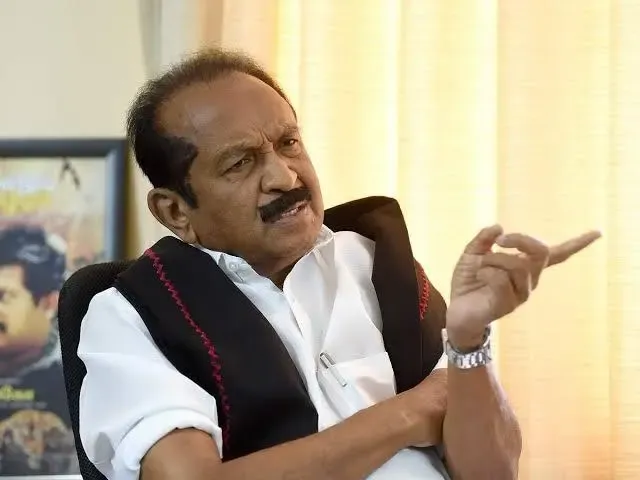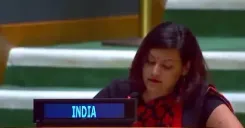Could the US Pharma Tariff Spark an Economic War? Vaiko Sounds Alarm

Synopsis
Key Takeaways
- US imposes a 100% tariff on imported medicines.
- Pharmaceuticals are India's largest export segment.
- Indian companies face heightened challenges in the US market.
- Call for urgent government action to protect exporters.
- Potential economic repercussions loom over India.
Chennai, Sep 27 (NationPress) The general secretary of Marumalarchi Dravida Munnetra Kazhagam (MDMK), Vaiko, has raised concerns that the recent decision by the United States to implement a staggering 100 percent import duty on pharmaceuticals may significantly harm India's pharmaceutical exports and potentially unleash a broader trade crisis.
Referencing statistics from the World Trade Organization (WTO), Vaiko emphasized that pharmaceuticals constitute India's most substantial industrial export category.
India exports approximately $12.7 billion worth of medicines annually to the US, primarily consisting of generic drugs.
Generic drugs are replicas of patented medications whose 20-year exclusivity period has lapsed, allowing any qualified manufacturer to produce and market them.
Although India does export patented and branded medications, their volume is markedly lower than that of generics. Notable Indian companies such as Dr Reddy's, Lupin, and Sun Pharma are key players in the US market. However, President Donald Trump has declared that starting from October 1, all imported medicines from companies lacking manufacturing facilities in America will incur a 100 percent tariff.
The White House suggested that companies establishing production in the US could evade this levy.
"This action explicitly targets India's pharmaceutical sector," Vaiko remarked, highlighting that Indian firms exported medicines worth Rs 31,000 crore to the US last year and exceeded Rs 32,000 crore in the first half of this year alone. The new tariff threatens to significantly undermine competitiveness and severely impact India's foreign exchange earnings.
This latest tariff adds to a prior 25 percent duty imposed by Washington after India persisted in importing crude oil from Russia despite US pressure, effectively raising the import tax on Indian goods entering the US to around 50 percent.
Additional tariffs on various products—50 percent on kitchen and bathroom fittings, 30 percent on furniture, and 25 percent on heavy trucks—have further compounded the pressure.
Labeling this an "economic war" against India, Vaiko urged the central government to take prompt action.
"The Centre must swiftly convene a special session of Parliament to deliberate on the US sanctions and devise strategies to protect Indian exporters and jobs," he asserted, suggesting that New Delhi engage Washington diplomatically while prioritizing national trade interests.









